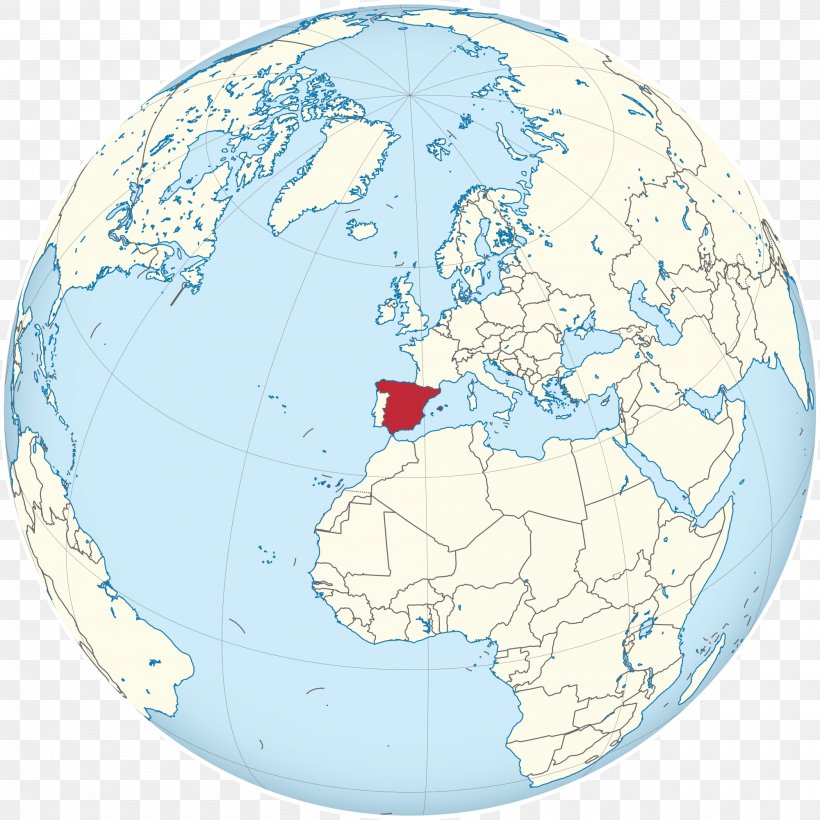Who posted their 95 thesis to the doors of a Catholic Church in Germany to show his disagreement with the Church's practices?
Martin Luther
What Country is colored in red? This country is home to many explorers from the Age of Exploration.
It is the land that colonized much of Latin America.

Spain
This period in world history is know as a movement that started in the city states of Italy, and spread to Northern Europe, and marked the beginning of the modern world.
Its name comes from the French word for "rebirth".
This period/event is when agricultural products such as corn, potatoes, and tobacco came to Europe from the New World (the Americas).
This happening also destroyed indigenous economies and the environment, and brought slavery and the plantation system to the Caribbean and the Americas.
The Columbian Exchange
What trade pattern was established by European nations?
It linked Europe, Africa, and the Americas.
It involved raw materials and gold and silver exported to Europe and Asia, slaves from Africa to the “New World,” and finished goods from Europe to Africa.
The Triangle Trade
Who was the leader of the Soviet Union during World War II?
Joseph Stalin
 What was the most powerful empire around 1500 AD?
What was the most powerful empire around 1500 AD?
It rose to power with its navy and it was the home of the Anglican Church.
England
What period greatly increased demand for raw materials, and therefore the need for European countries to establish more colonies.
This period was driven by advancements in technology such as Watt’s steam engine, Whitney’s cotton gin, and Bessemer’s process of making steel. It also began in England
The Industrial Revolution
What genocide was perpetrated by the Nazis that involved sending 6 million people to die in gas chambers?
The Holocaust
What policy rose out of a need by industrial nations in Europe who needed natural resources and markets to expand their economies?
It spread economic, political and social philosophies of European nations and was met with both armed resistance and intellectual movements.
Imperialism
Who was the prime minister of England during the Cold War? She was known as the Iron Lady.

What country is colored in pink?
Russia
What period is characterized by the centralization of power by monarchs, and decreased power by the nobility
The Age of Absolutism
What is the system that was created to administer the colonies of the defeated powers of WWI on a temporary basis?
What was the policy that was developed by President Harry S. Truman?
This idea stated that the US can, through military force and economic support, stop the spread of communism.
Containment
Who was the last president of the Soviet Union and saw the fall of the Berlin Wall?
Mikhail Gorbachev
What Empire is colored green on this map?
The Mughal Empire
What period led to changes in a specific country that was ultimately led by Count Cavor and Giuseppe Garbaldi?
The Unification of Italy
What was the Soviet Bloc’s answer to NATO? It was a union of the USSR and the Eastern Bloc nations.
The Warsaw Pact
What was the idea that humans were good, and that it was not a sin to focus art and literature on man.
Humanism
Mao Tse-Tung
What empire was colonized by Pizarro and his conquistadors indicated on this map?.svg/500px-Tawantinsuyu_(orthographic_projection).svg.png)
Inca Empire
What period promoted the development of the rights of Englishmen, the removal of King Charles I, and the establishment of limited monarch William and Mary.
The English Civil War and Glorious Revolution
What institution was used to root out heresy during the Reformation? It was established to reinforce Catholic doctrine.
The Inquisition
This was an attempt to restore Europe as it had been before the French Revolution and Napoleonic conquests, or the “status quo.”
It also restored monarchies, and sought to restore a “balance of power” in Europe.
The Congress of Vienna